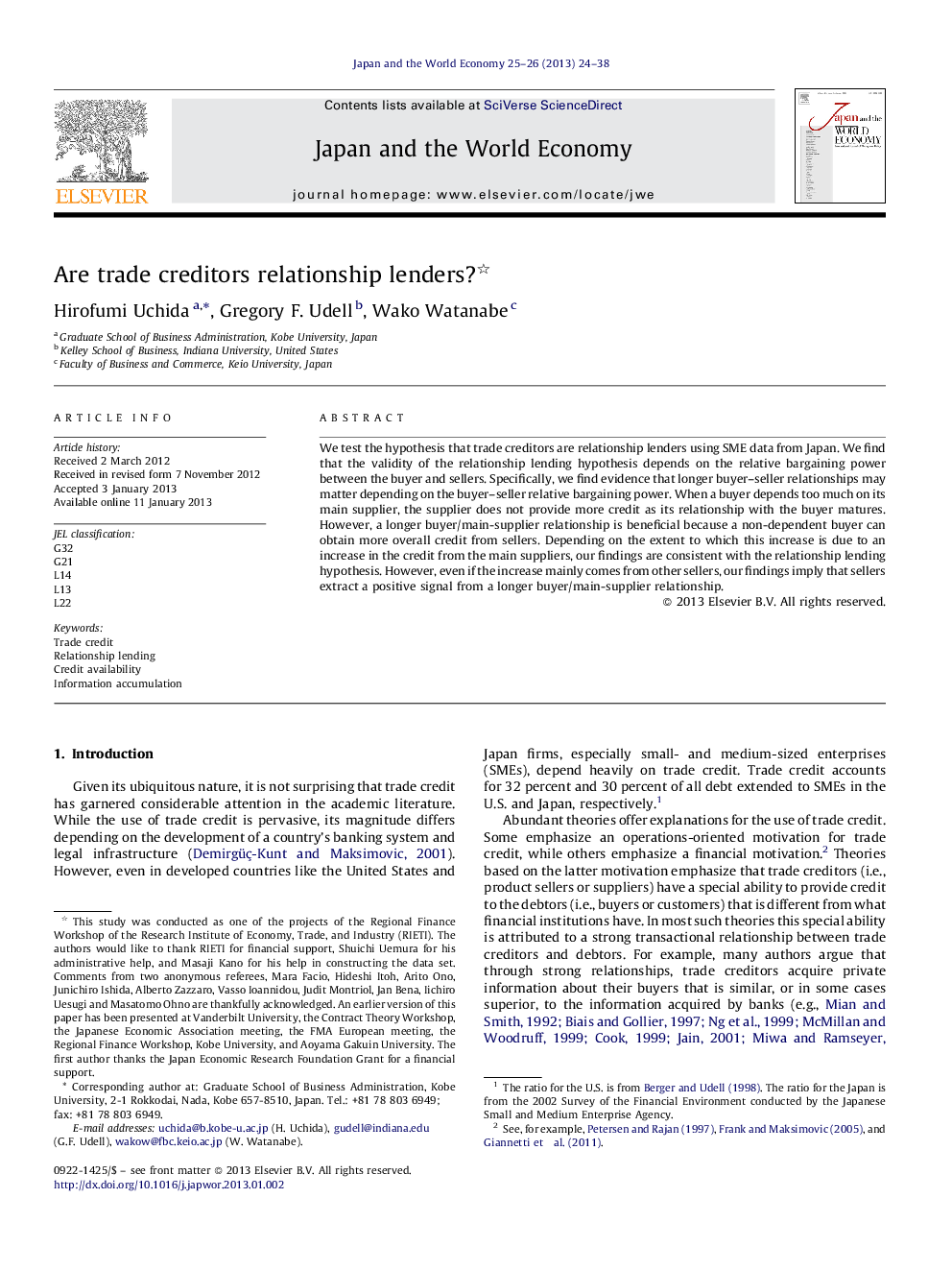| Article ID | Journal | Published Year | Pages | File Type |
|---|---|---|---|---|
| 5086246 | Japan and the World Economy | 2013 | 15 Pages |
We test the hypothesis that trade creditors are relationship lenders using SME data from Japan. We find that the validity of the relationship lending hypothesis depends on the relative bargaining power between the buyer and sellers. Specifically, we find evidence that longer buyer-seller relationships may matter depending on the buyer-seller relative bargaining power. When a buyer depends too much on its main supplier, the supplier does not provide more credit as its relationship with the buyer matures. However, a longer buyer/main-supplier relationship is beneficial because a non-dependent buyer can obtain more overall credit from sellers. Depending on the extent to which this increase is due to an increase in the credit from the main suppliers, our findings are consistent with the relationship lending hypothesis. However, even if the increase mainly comes from other sellers, our findings imply that sellers extract a positive signal from a longer buyer/main-supplier relationship.
⺠Validity of relationship lending depends on buyer-seller relative bargaining power. ⺠Longer relationship does not increase main supplier's credit to dependent buyer. ⺠Non-dependent buyer obtains more overall credit for longer main-supplier relationship. ⺠Non-dependent borrower benefits from relationship lending or “externality” effect.
